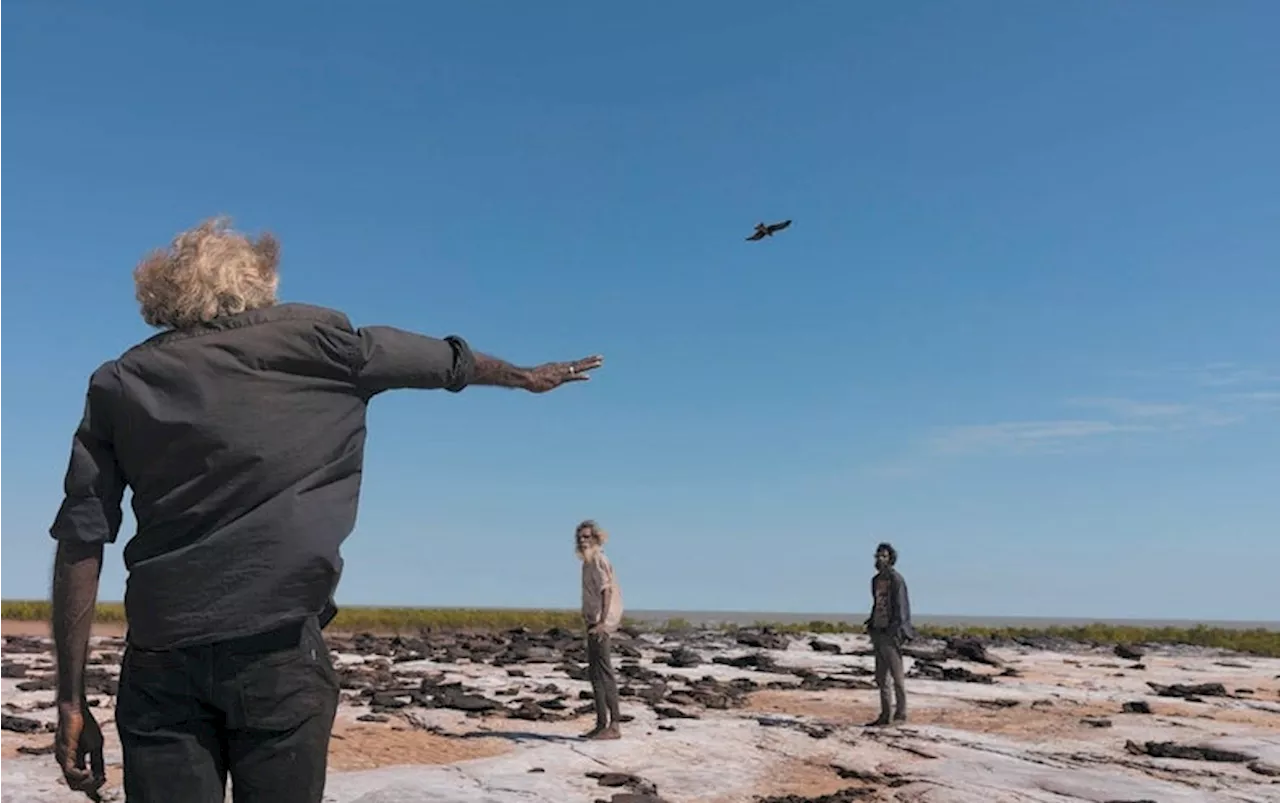An Aboriginal language provides unexpected insight into how language influences perception
In the early 20th century linguist Benjamin Lee Whorf thrilled his contemporaries by noting that the Hopi language, spoken by Native American people in what is now Arizona, had no words or grammatical elements to represent time. Whorf argued that this meant Hopi speakers had no concept of time and experienced what an English speaker might call “the passage of time” in a completely different way.
Recently Rachel Nordlinger, a linguist at the University of Melbourne who has studied Murrinhpatha for 18 years, and her colleagues conducted the first psycholinguistic experiment in the language. Significantly, they found that when people are putting their thoughts into words, their mental processes may be shaped by the structure of their language.
Australian languages are among the least explored by psycholinguists—a major gap given the size of the language family. Just 200 years ago at least 300 languages were spoken by people in Australia. Of that enormous group of languages, most belonged to the Pama-Nyungan family, with dozens of branches that descended from a protolanguage probably spoken 6,000 years ago in the northeastern part of the continent.
Nordlinger, who has been working with Murrinhpatha since 2005 but says she speaks it like a three-year-old, long suspected that understanding the demands the language puts on its learners could open windows on human thought. As director of the University of Melbourne's Research Unit for Indigenous Language, she leads the biggest team of researchers devoted to both studying Australian languages and supporting Indigenous speakers in their language goals.
The obvious candidate was Murrinhpatha, which Nordlinger had been studying for a decade. But it took some planning to take a lab-based experimental method that closely tracks participants' utterances and eye movements and apply it to a language that had never been studied in that way before. The results were stunning. The Murrinhpatha speakers did something completely new. It was like Tseltal, Nordlinger says, in that the speakers were looking evenly across both characters in a scene, but the Murrinhpatha speakers were doing it much faster and much earlier. It was very rapid relational encoding. “What's amazing,” Nordlinger says, “is that they were doing so much in the first 600 milliseconds.
For example, in response to a picture of a falling man whose outstretched leg projects toward the gaping jaws of a crocodile—a picture where, essentially, a crocodile is about to bite a man—Murrinhpatha speakers offered the following sentences: All human brains are of course the same, Nordlinger emphasized. But when people are putting thoughts into words, their mental processes may be different, depending on the language they are using.
For Murrinhpatha, beyond the window that Nordlinger, Kidd and their colleagues have opened on how the language is produced, we cannot say without rigorous research how individual speakers' perception might be further shaped by their language. Yet we can clearly see, Nordlinger says, that over time the culture has shaped the structure of the language. “Kinship has central importance in Murrinhpatha culture, and we see that encoded in the grammatical structure,” she explains.
Sverige Senaste nytt, Sverige Rubriker
Similar News:Du kan också läsa nyheter som liknar den här som vi har samlat in från andra nyhetskällor.
 Lessons In Chemistry's 7 Biggest Book ChangesLessons in Chemistry is the latest in a string of Apple TV+ book-to-screen adaptations, featuring multiple changes to varying degrees of success.
Lessons In Chemistry's 7 Biggest Book ChangesLessons in Chemistry is the latest in a string of Apple TV+ book-to-screen adaptations, featuring multiple changes to varying degrees of success.
Läs mer »
 Google's internet dominance under siege: Antitrust trial threatens sweeping changesIf government regulators prevail against Google in the biggest U.S. antitrust trial in a quarter century, it's likely to unleash drastic changes that will undermine the dominance of a search engine that defines the internet for billions of people.
Google's internet dominance under siege: Antitrust trial threatens sweeping changesIf government regulators prevail against Google in the biggest U.S. antitrust trial in a quarter century, it's likely to unleash drastic changes that will undermine the dominance of a search engine that defines the internet for billions of people.
Läs mer »
 Activist Builds News Corp Stake, Plans to Seek ChangesStarboard believes media company trades at significant discount due to its structure
Activist Builds News Corp Stake, Plans to Seek ChangesStarboard believes media company trades at significant discount due to its structure
Läs mer »
 Activist investor Starboard reportedly seeks changes at News CorpStarboard believes parent company of MarketWatch and Wall Street Journal is undervalued, according to WSJ report
Activist investor Starboard reportedly seeks changes at News CorpStarboard believes parent company of MarketWatch and Wall Street Journal is undervalued, according to WSJ report
Läs mer »
 'Gen V's MAJOR Reveal Changes EverythingGen V Episode 5 left viewers with the major reveal that Maddie Phillips’ Cate had betrayed all of her friends.
'Gen V's MAJOR Reveal Changes EverythingGen V Episode 5 left viewers with the major reveal that Maddie Phillips’ Cate had betrayed all of her friends.
Läs mer »
 Under pressure, Trump changes his tune on Israel, NetanyahuSteve Benen is a producer for 'The Rachel Maddow Show,' the editor of MaddowBlog and an MSNBC political contributor. He's also the bestselling author of 'The Impostors: How Republicans Quit Governing and Seized American Politics.'
Under pressure, Trump changes his tune on Israel, NetanyahuSteve Benen is a producer for 'The Rachel Maddow Show,' the editor of MaddowBlog and an MSNBC political contributor. He's also the bestselling author of 'The Impostors: How Republicans Quit Governing and Seized American Politics.'
Läs mer »
